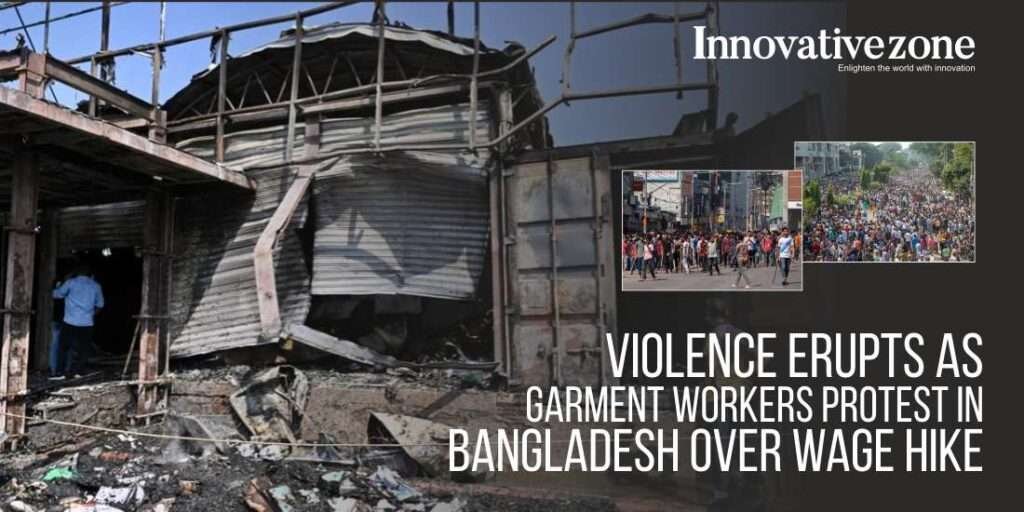Violence Erupts as Garment Workers Protest in Bangladesh Over Wage Hike
Written by Sanjay Kumar
Dhaka, Bangladesh – A wave of violent protests and clashes swept through Bangladesh as garment workers took to the streets demanding higher wages in response to a proposed wage increase by the Bangladesh Garment Manufacturers and Exporters Association (BGMEA). Bangladesh, the second-largest garment-producing country globally, has nearly 3,500 factories employing over four million workers, the majority of whom are women.
The BGMEA had offered to raise the monthly minimum wage by 25%, reaching USD 90, far below the workers’ demands of USD 208. Many workers currently earn 8,300 takas (approximately USD 75) as their monthly minimum wage, often having to work overtime to make ends meet, according to labor unions and workers.
On Tuesday (December 31), thousands of garment factory workers gathered in the capital city of Dhaka and the industrial district of Gazipur to demand better wages. In Gazipur, protesters were seen hurling stones at shops, while in Dhaka’s Mirpur area, hundreds of demonstrators chanted slogans and some vandalized vehicles. Security personnel patrolled the area to maintain order.
Shahida Akhter, a garment worker, expressed her struggles, stating, “If you reduce the price of essential goods, our wages won’t need to be hiked. Do you know what is the cost of having a family? If there are babies, we need to spend more.”
Raihan Mia, a fire department official in Gazipur, reported that some workers set fire to an electric goods showroom and vandalized a medical clinic and other shops. Following these incidents, BGMEA called on the protesters not to resort to violence or damage their factories.
Local media reported that two workers lost their lives in clashes with police in Gazipur, while some protesters blocked roads, set fires, and vandalized several factories. Bangladesh’s economy has been stable for years in terms of annual growth, but rising inflation has become a significant challenge. The country generates approximately USD 55 billion annually from the export of garment products, primarily to the United States and Europe.
These protests occurred against a backdrop of mounting tensions as Bangladesh approaches general elections. The ruling Awami League party, led by Prime Minister Sheikh Hasina, faces off against the main opposition group, the Bangladesh Nationalist Party, led by her rival and former Prime Minister Khaleda Zia. The wage dispute and the larger economic challenges in the country have added to the existing political tensions.
Must Read:-
- Top 10 Largest Oceans and Seas in the World
- Top 10 automobile companies in India 2023
- Top 10 Electrical Companies in India 2023
- Top 10 Real Estate Companies in India-2023
- Top 10 most awaited & upcoming Hindi web series 2023-24
- Top 10 Clothing Brands in India 2023
- Top 10 best cultures in the world-2023
- Top 10 best country to work and live in 2023
- Top 10 best country for education 2023
- Top 10 Most Followed Celebrities on Instagram 2023
- The Inspiring Success Story of Bear Grylls
- Top 10 Business Coaches in The World to Guide Entrepreneurs In 2023
- Top 10 movies based on True Stories you must watch before you die
- Top 10 Best Online Doctor Consultation Apps in USA


